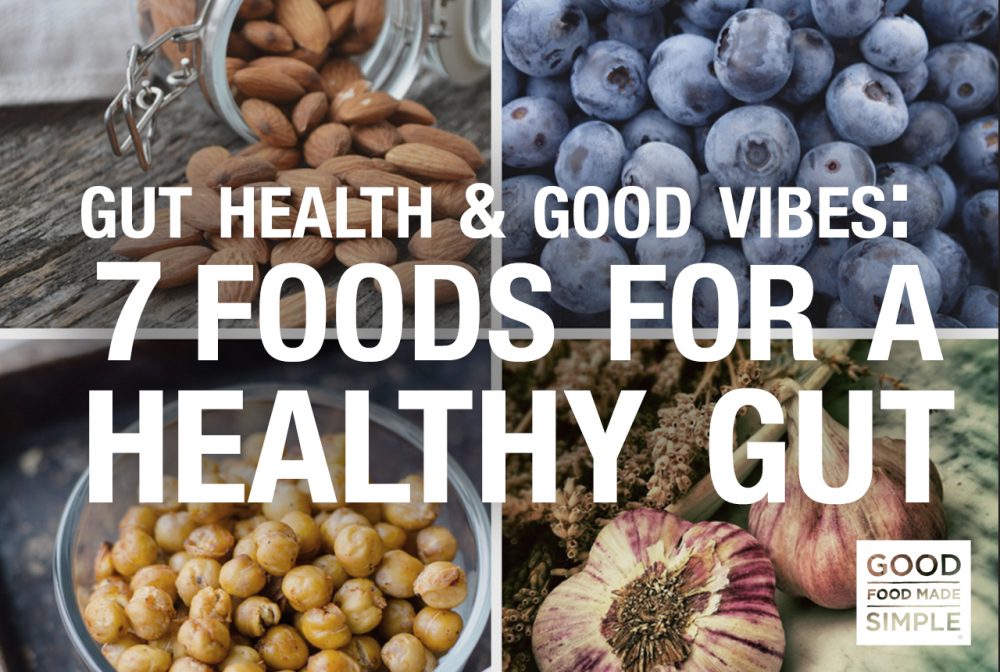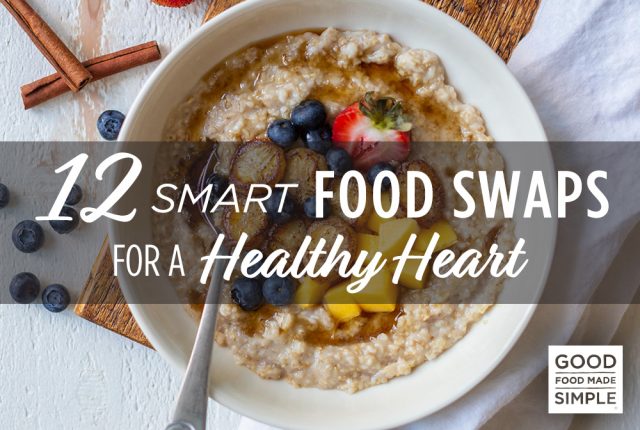
25 Active Date Ideas
While going on dates can certainly be fun, a typical night out with a romantic partner often ends up being focused on eating ...
read more
Clean gut, happy gut. That’s what they say, right?! While it might not be the sexiest of topics, our gut health is connected to so many other aspects of our health and well-being. The bacteria that lives in our digestive tracts — microbiomes — can have a big impact on our overall health, from inflammation levels and fat loss to anxiety and depression.
To maintain great gut health, doctors say it’s best to eat foods that contain lots of fiber, probiotics, and prebiotics. Let’s break those terms down quickly for you:
Fiber: Fiber is a plant-based nutrient that helps regulate the speed at which food moves through our gut. It’s actually an indigestible part of plant foods that travel through our digestive system, absorbing water and improving our bowel movements.
Probiotics: These are “good” live microorganisms that can combat “bad,” infection-causing microbes. Probiotics are naturally occurring and have shown to fight off digestive disorders and upset stomachs.
Prebiotics: While probiotics are live, beneficial bacteria, pre-biotics are non-digestible fibers found in foods like bananas, onions, and garlic. Prebiotics go through a fermentation process in our digestive tract that helps increase the number of good bacteria in our digestive system.
Now, let’s dive into seven foods that are essential for a healthy and happy gut.
Kimchi.
Kimchi a staple side dish from Korean cuisine. It’s made from salted and fermented vegetables, such as radishes and napa cabbage. The magic of kimchi occurs because it’s fermented, which is what makes it a probiotic. It’s also a great source of fiber, too. You can find kimchi at many Korean restaurants, or you can get creative and make it in your own kitchen. As an easy (and just as good-for-you) alternative, make your own sauerkraut. Simply combine sliced cabbage with kosher salt and then cover for a minimum of three days. The bacteria on the cabbage leaves will ferment the vegetable’s natural sugars into lactic acid, creating powerful probiotic qualities for your gut.
Legumes.
Okay, this isn’t a single food item, but all legumes are really good for your gut, so we have to mention them all. Think: chickpeas, lentils, navy beans, split peas, and white beans. The protein, fiber, and carbohydrates in legumes are found to exert beneficial effects when it comes to GI.. However, soaking beans before cooking them makes them less likely to cause bloating and gas, so stick to making your legumes from scratch versus buying the canned version. Legumes go great on summer salads, with quinoa or rice, or inside a tasty burrito.
Garlic.
Here’s an example of a prebiotic food to add to your grocery list. Garlic promotes the growth of beneficial bacteria called bifidobacteria, which is found in the gut. It also prevents disease-promoting bacteria from growing in our digestive system. The beauty of garlic is you can add it to almost anything (well, maybe not ice-cream) and it only makes your dish taste better. You can roast it, pan fry it, or even eat it raw. There’s never a bad time to eat garlic bread either, so do it knowing you’re treating your gut well!
Berries.
These small, versatile fruits pack a punch when it comes to health benefits. Raspberries, blueberries, and blackberries are all filled with antioxidants, fiber, and naturally-occurring sugars. Their fiber content also helps promote a healthy digestive tract. Top them on a morning bowl of oatmeal (for extra fiber!) eat them straight from the carton, or indulge in a homemade mixed-berry pie.
Barley, bran, and bulgur.
These three “B” grains are whole grains that are chock-full of fiber to ensure things stay movin’ and groovin’ down below. All of these grains are forms of soluble fiber and have shown to help with bowel irregularities while lowering the risk for developing diverticular disease. Many of these grains are found in other foods, like cereals, soups, or risotto. You can also find them on their own in a grocery store and cook them to your liking. Top these cooked grains with healthy veggies and a yummy homemade dressing.
Almonds.
Almonds are another prebiotic food that helps improve our digestive health by increasing levels of the “good” bacteria found in our gut. Lucky for us, almonds are also chock-full of other awesome health benefits, helping to lower blood sugar levels, reduced blood pressure, and support maintaining a healthy weight. Snack on them raw, add them to a bowl of oatmeal, or slice them up and include in an Asian stir-fry.
Yogurt and kefir: Another probiotic option for your gut is a fermented dairy food, like yogurt and kefir. These are both cultured milk products that are known for their tart and slightly sour taste. They contain beneficial bacteria that help break down sugars, making them easier to digest while helping to fight off gastrointestinal diseases. Kefir has a thinner consistency than yogurt and is typically sold as a beverage, whereas yogurt is thicker and normally eaten with a spoon. While both are great for gut health, kefir typically contains three times the amount of probiotic cultures than yogurt.
What’s interesting about this list is there are many ways to combine these ingredients into one larger meal that will be super healthy for your gut. Almonds with yogurt? Legumes with barley? Kimchi with berries? (Okay, maybe not that last one.) All of this is to say that these foods — plus many more — are great as standalone food items for your gut, but make an even better contribution to your health if they’re part of a larger meal. Don’t be shy when it comes to eating fiber, probiotics, and prebiotics. Your gut will surely thank you.
Now that we know a handful of foods and nutrients that promote a healthy gut, it’s also important to learn about certain foods we should avoid that can add more harm than good to our digestive tract. Foods that are heavy in gluten (white bread, pasta, etc) are said to increase inflammation in the body and cause uncomfortable bloating. Soy products, like tofu and edamame, are often mass-produced and are genetically modified (GMO), which can lead to dysbiosis (an imbalance in your GI tract) and leaky gut. Corn is another tricky food that often contains GMOs and can make things funky in our digestive systems. Lastly, stay away from excess sugar! Sugar can cause a lot if issues in our gut, feeding on bad bacteria, causing yeast growth, and helping promote dysbiosis.
At the end of the day, if you focus on fresh, organic, and whole foods, you can count on your body being fed with the right nutrients for a healthy body. Focus on a smart balance of fiber, protein, and carbs, and add in pro and prebiotics to the mix.

25 Active Date Ideas
While going on dates can certainly be fun, a typical night out with a romantic partner often ends up being focused on eating ...
read more
12 Smart Food Swaps For A Healthy Heart
February is American Heart Month, and one of the best ways to maintain good heart health is to watch what you eat. Instead of...
read more
Starting the New Year With the ‘Right’ Mindset
With the holiday finally over and the new year upon us, I’d be shocked if you haven’t thought about New Year's Resoluti...
read more